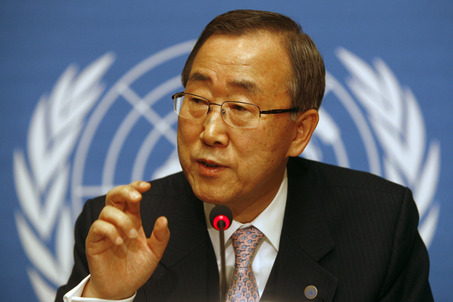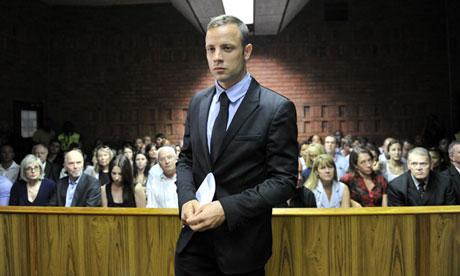‘Shame still clings’ to UN over Rwanda genocide

KIGALI —The UN Secretary General Ban Ki-moon said yesterday that the world body was still wracked by shame over its failure to act against the genocide in Rwanda 20 years ago. “Many United Nations personnel and others showed remarkable bravery. But we could have done much more. We should have done much more. In Rwanda, troops were withdrawn when they were most needed,” Ban said in a speech at commemorations marking the 20th anniversary of the genocide.
“One year later in Srebrenica, areas proclaimed ‘safe’ by the United Nations were filled with danger, and innocents were abandoned to slaughter,” he added, saying: “The shame still clings, a generation after the events.” He said the genocide, during which at least 800,000 mainly ethnic Tutsis were killed in the space of 100 days as “one of the darkest chapters in human history”.
“Today, Syria is in flames and the Central African Republic is in chaos. The world has yet to fully overcome its divisions, its indifference, its moral blind spots,” he lamented.
But he said there was progress, in that governments “can no longer claim that atrocity crimes are only a domestic matter” and “leaders and warlords alike face the growing likelihood of prosecution for their crimes”. The UN was widely criticised in 1994 for only belatedly recognising that a genocide was in progress and therefore shirking its responsibility to intervene — despite repeated appeals from the UN peacekeeping contingent in Rwanda.
Ban said the UN had changed its way of operating as a result.
“I have sent my own signal to UN representatives around the world, My message to them is simply this: When you see people at risk of atrocity crimes, do not wait for instructions from afar. Speak up, even if it may offend. Act,” he said.
Meanwhile, the French ambassador to Rwanda says he has been barred from ceremonies marking the 20th anniversary of the genocide.
Michel Flesch said yesterday that he was informed by the Rwandan Foreign Ministry that he was no longer accredited for the ceremonies.
“Yesterday night the Rwandan Foreign Ministry telephoned to inform me that I was no longer accredited for the ceremonies,” Flesch said yesterday.
The diplomatic row between France and Rwanda broke out after Rwanda accused France of involvement in the killing of hundreds of thousands of people in 1994. Rwandan President Paul Kagame recently denounced the “direct role of Belgium and France in the political preparation for the genocide”.
Kagame said French troops were both accomplices and “actors” in the bloodbath. However, Paris has strongly rejected the accusation.
UN Secretary General Ban Ki-moon and several African leaders are due to attend ceremonies in Kigali’s football stadium.
The UN chief said on Sunday that the international community must learn lessons from the incident. Official mourning culminated in the African nation yesterday when a flame of remembrance arrived in the capital after touring across the country for three months.
The Rwandan genocide began following the shooting down of a plane carrying former Rwandan President Juvenal Habyarimana, on April 6, 1994. Then Burundian President Cyprien Ntaryamira was also killed in the plane crash.
After the crash, Hutus who were in majority, were incited to commit acts of ethnic violence against Tutsis. The genocide of 1994 lasted approximately 100 days and hence is called the “100 Days of Hell.” — AFP/Presstv.








Comments